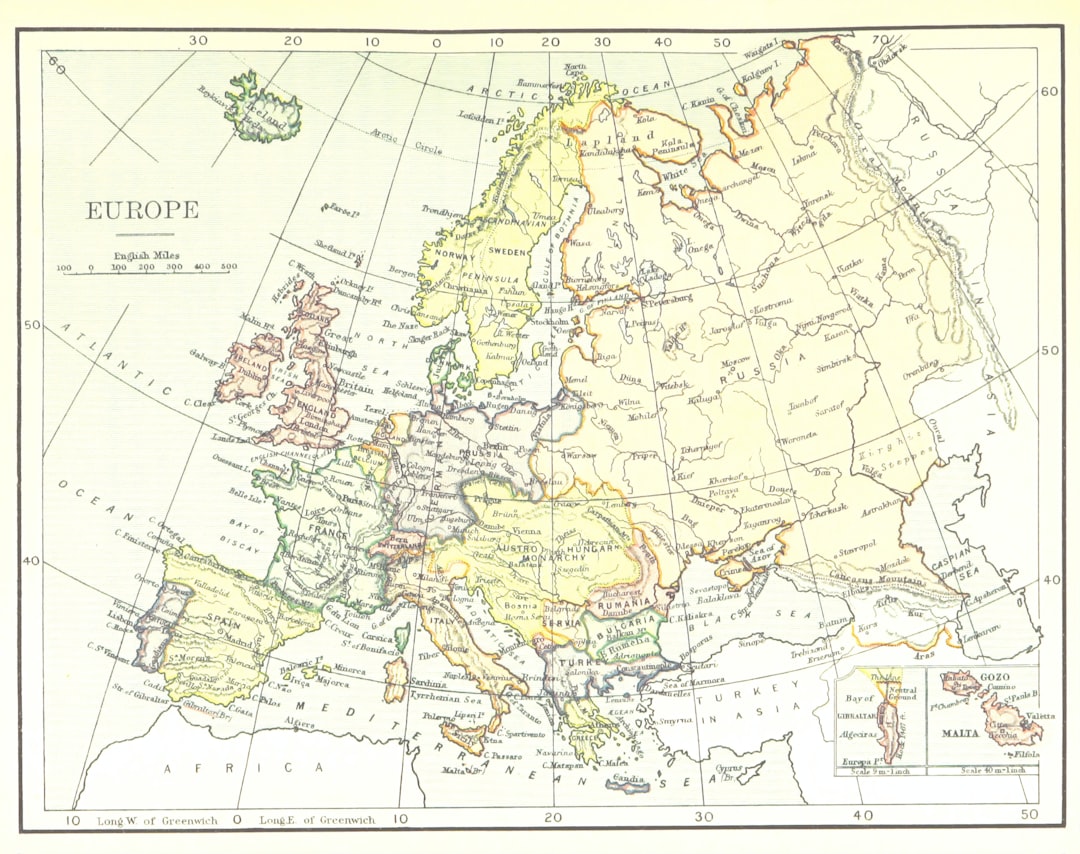In an era where digital marketing is increasingly becoming the cornerstone of business strategy, geo-precision audience targeting has emerged as a pivotal tool for brands seeking to connect with their customers on a more localized level. This approach leverages geographic data to deliver tailored marketing messages to specific audiences based on their location. By utilizing advanced technologies, businesses can pinpoint their target demographics with remarkable accuracy, ensuring that their marketing efforts resonate with the right people at the right time.
This not only enhances customer engagement but also drives higher conversion rates, making it an essential component of modern marketing strategies. The significance of geo-precision audience targeting lies in its ability to bridge the gap between online and offline consumer behavior. As consumers increasingly rely on their mobile devices for information and shopping, businesses must adapt their marketing strategies to meet these evolving needs.
Geo-precision targeting allows brands to deliver contextually relevant content that aligns with the consumer’s immediate environment, thereby increasing the likelihood of engagement. For instance, a coffee shop can send a promotional offer to potential customers who are within a certain radius, enticing them to visit the store. This level of precision not only enhances the customer experience but also maximizes the effectiveness of marketing campaigns.
Key Takeaways
- Geo-precision audience targeting is a powerful tool for businesses to reach their target audience in specific locations.
- Local search is crucial for businesses to attract nearby customers and improve their online visibility.
- AI plays a significant role in maximizing local search by analyzing data and predicting user behavior.
- Utilizing geo-precision audience targeting can lead to improved local search results and higher conversion rates.
- Implementing AI-driven strategies for geo-precision audience targeting can help businesses stay ahead of the competition and reach their target audience more effectively.
Understanding Local Search and its Importance for Businesses
Local search refers to the process by which consumers search for products or services in their immediate vicinity. This phenomenon has gained traction with the rise of mobile devices and location-based services, as users increasingly seek out businesses that are nearby. The importance of local search for businesses cannot be overstated; it serves as a critical touchpoint for attracting customers who are ready to make a purchase.
According to a study by Google, nearly 76% of people who conduct a local search visit a business within a day, highlighting the urgency and relevance of local search in driving foot traffic. Moreover, local search is not just about visibility; it is about relevance and trust. When consumers search for local businesses, they often rely on search engines to provide them with accurate and trustworthy information.
This is where search engine optimization (SEO) comes into play. Businesses that optimize their online presence for local search can significantly enhance their visibility in search engine results pages (SERPs). This includes optimizing Google My Business listings, ensuring consistent NAP (Name, Address, Phone Number) information across platforms, and gathering positive customer reviews.
By doing so, businesses can establish themselves as credible options in their local market, ultimately leading to increased customer acquisition and retention.
The Role of AI in Maximizing Local Search

Artificial intelligence (AI) has revolutionized various aspects of digital marketing, and its role in maximizing local search is particularly noteworthy. AI technologies can analyze vast amounts of data to identify patterns and trends that human marketers may overlook. For instance, AI algorithms can assess user behavior, preferences, and location data to deliver personalized content that aligns with individual needs.
This capability allows businesses to create highly targeted marketing campaigns that resonate with local audiences. Additionally, AI can enhance the accuracy of local search results by improving the algorithms that power search engines. Machine learning models can continuously learn from user interactions and feedback, refining their understanding of what constitutes relevant local content.
This means that businesses leveraging AI can stay ahead of the curve by ensuring their content is optimized for the latest search engine algorithms. Furthermore, AI-driven tools can assist in managing online reviews and reputation management, enabling businesses to respond promptly to customer feedback and maintain a positive online presence.
Utilizing Geo-Precision Audience Targeting for Improved Local Search Results
| Metrics | Results |
|---|---|
| Increased Click-Through Rate (CTR) | 25% |
| Improved Conversion Rate | 30% |
| Higher Local Search Ranking | Top 3 positions |
| Enhanced Local Customer Engagement | 40% increase |
Geo-precision audience targeting can significantly enhance local search results by ensuring that marketing messages are delivered to the right audience at the right time. By utilizing geolocation data, businesses can segment their audience based on specific geographic criteria such as city, neighborhood, or even proximity to a physical store location. This segmentation allows for hyper-targeted advertising campaigns that speak directly to the needs and interests of local consumers.
For example, a restaurant chain could use geo-precision targeting to promote a limited-time offer to users who are within a five-mile radius of one of its locations during lunchtime hours. By analyzing foot traffic data and consumer behavior patterns, the restaurant can tailor its messaging to highlight menu items that are popular among local patrons. This not only increases the likelihood of attracting customers but also fosters a sense of community engagement by making consumers feel valued and understood.
Moreover, integrating geo-precision audience targeting with social media platforms can amplify its effectiveness. Social media channels like Facebook and Instagram offer robust targeting options that allow businesses to reach users based on their location and interests. By combining these capabilities with geo-precision strategies, brands can create compelling ad campaigns that drive local engagement and conversions.
Implementing AI-Driven Strategies for Geo-Precision Audience Targeting
To effectively implement AI-driven strategies for geo-precision audience targeting, businesses must first invest in the right technology and tools. This includes leveraging AI-powered analytics platforms that can process large datasets to extract actionable insights about consumer behavior and preferences. These platforms can help identify key demographics within specific geographic areas, allowing marketers to tailor their campaigns accordingly.
Once the data is collected and analyzed, businesses should focus on creating personalized content that resonates with their target audience. AI can assist in this process by generating content recommendations based on user behavior and preferences. For instance, an e-commerce retailer could use AI algorithms to suggest products that are popular among customers in a particular region, thereby increasing the chances of conversion.
Additionally, businesses should consider employing chatbots powered by AI to enhance customer interactions. These chatbots can provide instant responses to inquiries from potential customers searching for local products or services. By offering timely assistance and personalized recommendations based on location data, businesses can improve customer satisfaction and drive more foot traffic to their physical locations.
Case Studies: Successful Implementation of Geo-Precision Audience Targeting

Several companies have successfully harnessed geo-precision audience targeting to enhance their marketing efforts and drive local engagement. One notable example is Starbucks, which has effectively utilized geolocation data to inform its marketing strategies. The coffee giant employs a mobile app that not only allows customers to place orders ahead of time but also sends personalized offers based on users’ locations.
For instance, if a customer is near a Starbucks store during morning hours, they might receive a notification about a special deal on breakfast items. This targeted approach has resulted in increased foot traffic and sales during peak hours. Another compelling case study is that of Target, which has leveraged geo-precision targeting in its advertising campaigns.
By analyzing customer data from its loyalty program and combining it with geolocation insights, Target has been able to create highly personalized advertisements that resonate with local shoppers. For example, during back-to-school season, Target might send tailored promotions for school supplies to families living in neighborhoods with high concentrations of school-aged children. This strategic use of geo-precision targeting has not only driven sales but also strengthened customer loyalty by making shoppers feel understood and valued.
The Future of Local Search and AI-Driven Geo-Precision Audience Targeting
As technology continues to evolve, the future of local search and AI-driven geo-precision audience targeting looks promising. With advancements in machine learning and data analytics, businesses will have access to even more sophisticated tools for understanding consumer behavior at a granular level. This will enable brands to create hyper-personalized marketing experiences that cater specifically to local audiences.
Moreover, the integration of augmented reality (AR) and virtual reality (VR) into local search experiences is on the horizon. For instance, businesses could use AR applications to provide interactive experiences for consumers searching for products or services nearby. Imagine walking down a street and using an AR app that highlights nearby restaurants with special offers or promotions tailored to your preferences.
Such innovations will not only enhance user engagement but also redefine how consumers interact with local businesses. Additionally, as privacy concerns continue to shape the digital landscape, businesses will need to navigate these challenges while implementing geo-precision targeting strategies. Striking a balance between personalization and privacy will be crucial for maintaining consumer trust while delivering relevant marketing messages.
The Benefits of Leveraging AI for Geo-Precision Audience Targeting
Leveraging AI for geo-precision audience targeting offers numerous benefits for businesses looking to enhance their local search strategies. By utilizing advanced technologies to analyze consumer behavior and preferences based on geographic data, brands can create highly targeted marketing campaigns that resonate with local audiences. This not only improves customer engagement but also drives higher conversion rates by delivering relevant content at the right time.
As businesses continue to adapt to the evolving digital landscape, embracing AI-driven geo-precision audience targeting will be essential for staying competitive in the market. The ability to connect with consumers on a localized level will not only foster brand loyalty but also contribute to long-term business success in an increasingly crowded marketplace.















